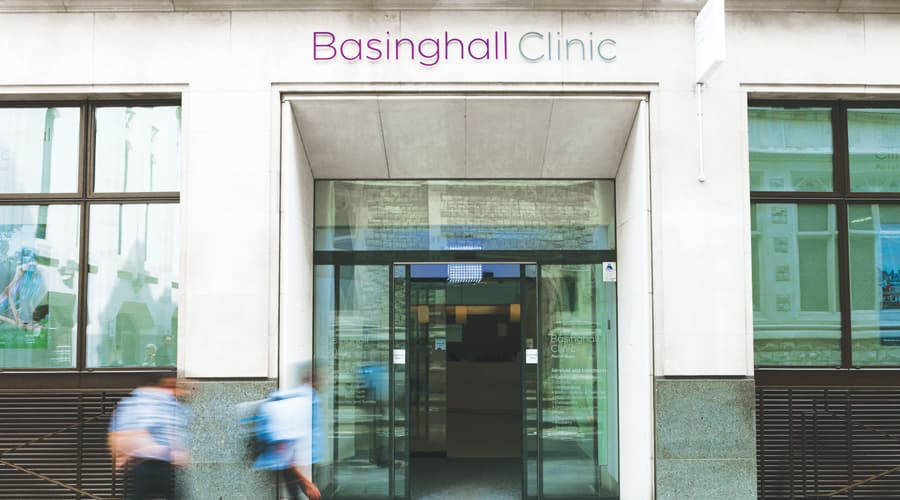MRI with contrast
An MRI with contrast uses an injection of a contrast agent (dye) to help highlight your blood vessels, organs, and soft tissues in greater detail.
What is an MRI with contrast?
Magnetic resonance imaging (MRI) is a type of diagnostic imaging procedure that uses a magnetic field and computer-generated radio waves to produce detailed images from inside the body.
An MRI with contrast combines a standard MRI scan with an injection of a contrast agent (dye). This dye helps to highlight your blood vessels, organs and soft tissues, which makes them show up more clearly and in greater detail on the scan.
Your consultant may recommend an MRI scan with contrast if you have a suspected abnormality in an organ, such as the heart or brain. This type of scan is also particularly useful for assessing tumours.
An MRI scan is a safe and painless procedure, but there may be some instances where it isn’t suitable for you. This may be the case if:
- you are pregnant
- you have metal in your body
- you’ve had a previous allergic reaction to a contrast agent
- you have kidney problems
A contrast agent is a special type of dye that is used to help highlight your blood vessels, organs and soft tissues on an MRI scan.
Most contrast agents contain a type of metal called gadolinium, which interacts with the MRI scanner’s magnetic field. These are known as gadolinium-based contrast agents (GBCAs). There are different types of GBCAs, which are used for different areas of the body.
GBCAs are usually administered intravenously (via an injection). They are safe to take and are usually passed out of the body through your urine within 24 hours.
An MRI with contrast is carried out by a radiographer – a health professional trained to carry out imaging procedures.
An MRI scanner is shaped like a tunnel which is open at both ends. You’ll lie on a motorised bed that moves into the scanner, either head or feet first.
Before you enter the scanner, you will be injected with the contrast agent through an IV line placed in your arm.
An MRI with contrast usually takes between 30-90 minutes to complete. You must keep still during the scan as the MRI scanner is very sensitive to movement.
You can go home directly after your imaging procedure. Your consultant will receive your results within 48 hours and follow up with you regarding next steps.
About our scanners
Cromwell Hospital uses scanners which are designed to create a calming atmosphere, with ambient audio-visual technology that allows you to enjoy music and a relaxing light show throughout your scan. Our scanners are also larger than traditional machines.
Basinghall Clinic uses one of the newer generation of MRI scanners. The tunnel of the scanner is bigger than most other scanners (70cm diameter/120cm length) and scans can often be done going into the tunnel feet first. Patients who have had problems with MRI claustrophobia in the past often find they are able to be scanned at our clinic.
Why choose us for your MRI with contrast?
Convenient location
Have your MRI with contrast at either Basinghall Clinic, a centrally based outpatient centre, or at our west London hospital.
No waiting list
Access your diagnostic imaging procedure faster, with appointments available within days of enquiry.
Advanced facilities
Our MRI scanners are larger than standard and use ambient audio-visual technology to create a calming atmosphere for patients.
Paying for your treatment
We welcome both self-paying and insured patients.
Self-pay patients
We offer several ways for patients to self-pay, including pay-as-you-go and self-pay packages.
Insured patients
At Cromwell Hospital, we accept private health insurance from most major providers, including AXA, Aviva, Bupa, and Vitality.
Our locations

Cromwell Hospital

Basinghall Clinic
4 Basinghall Street
London EC2V 5BQ
United Kingdom
Please note, Basinghall Clinic may not provide all the services listed on this webpage.
Book an appointment today
Our telephone lines are open 8am to 8pm Monday to Friday and 8am to 2pm Saturdays.
Alternatively, fill out our appointment request form and we'll be in touch shortly.
Please note - regrettably we are unable to answer specific medical questions or offer medical advice via email or telephone.
